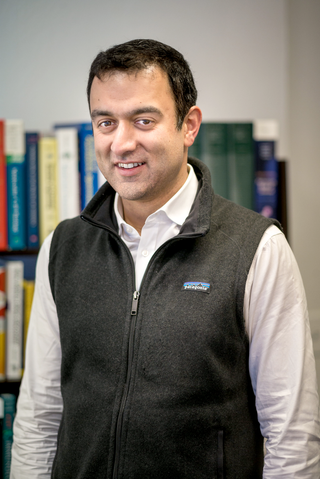A single-product spinout seven weeks removed from disclosing a $64 million Series B round wants to raise $115 million in an initial public offering to move its treatment for a family of fatal rare genetic disease deeper into clinical trials.
San Francisco's Eidos Therapeutics Inc. would be the sixth Bay Area life sciences company to go public this year and the second to file this week. Kezar Life Sciences Inc. of South San Francisco said Thursday that it is seeking an $80.5 million IPO.
Eidos, which in Plato's Greek meant "idea," is developing an oral small-molecule drug, called AG-10, for three forms of transthyretin amyloidosis, or ATTR. The slowly progressing but fatal disease is marked by a buildup of deposits of a mutated version of the protein amyloid in the heart and peripheral nerves.
There is no approved drug for the types of ATTR, but it is becoming a crowded field of wannabes. Pfizer Inc. (NYSE: PFE) in March reported results of a late-stage trial of its drug, called tafamidis, and Alnylam Pharmaceuticals (NASDAQ: ALNY) of Cambridge, Mass., that same month said a late-stage study of its drug, called patisiran, improved cardiomyopathy.
Generic diflunisal, a non-steroidal anti-inflammatory drug for pain and arthritis, is another potential ATTR competitor.
But where other approaches to ATTR have tried to silence or knock down transthyretin, a transport protein, Eidos' drug aims to stabilize the protein, said Neil Kumar, a former Third Rock Ventures principal who is Eidos' CEO.
"The concept of protective genetic modifiers is one of great interest," Kumar told the San Francisco Business Times last month. "To me, this is part of the evolution of cardiology to precision medicine."
The bulk of Eidos' IPO proceeds are earmarked for clinical trials, the company said in a filing Friday with the Securities and Exchange Commission, but the cash also could be used to license, buy or invest in new businesses, technologies or assets.
Eidos has raised more than $91 million since it was founded in 2013. It is majority owned by BridgeBio Pharma LLC, whose backers include Kohlberg Kravis Roberts, Perceptive Advisors, Viking Global Investors, AIG and Aisling Capital.
BridgeBio's portfolio is focused on single-asset companies aimed at genetic diseases. Led by Kumar and including Onyx Pharmaceuticals cofounder Frank McCormick, serial biotech executives Hoyoung Huh and Charles Homcy, has 11 such companies in its bag.
BridgeBio, which owns 63 percent of the company, will continue to be Eidos' controlling stockholder, the company said in its IPO filing. Cofounders Dr. Isabella Graef and Mamoun Alhamadsheh own 6.8 percent stakes.
Eidos, which would be traded on NASDAQ as "EIDX," is one of the most advanced companies in the BridgeBio portfolio. Early results of a mid-stage Phase II clinical trial for one form of ATTR are expected by the end of the year. An open label extension study — between a double-blind, randomized controlled study and the request for Food and Drug Administration approval — starts this year in a second version of the disease. And a late-stage, Phase III trial in a third form of the disease will start early next year.
That is quick work for a 14-employee company founded just five years ago — the type of near-market results that lures investors who have fueled monster rounds of venture capital funding and a new wave of biotech IPOs. Eidos researchers have been working out of incubator space at MBC BioLabs in San Francisco's Dogpatch neighborhood.
The company's story starts in the Stanford University lab of Graef, who published a paper about an experimental drug that could intervene early against ATTR and stabilize the disease. Graef's work at Stanford was supported by the Hillblom Foundation the Baxter Foundation and Stanford's SPARK program.
Graef and Alhamadsheh, an associate professor of pharmaceutical chemistry at the University of Pacific, founded the company in 2013. They designed their drug to mimic a variant of the transthyretin gene that is considered a "rescue mutation" because it prevents ATTR in people who also carry the disease-causing mutation in the gene.
Eidos, which lost $11.9 million last year and had $25.3 million cash as of March 31, has burned through more than $30 million.





